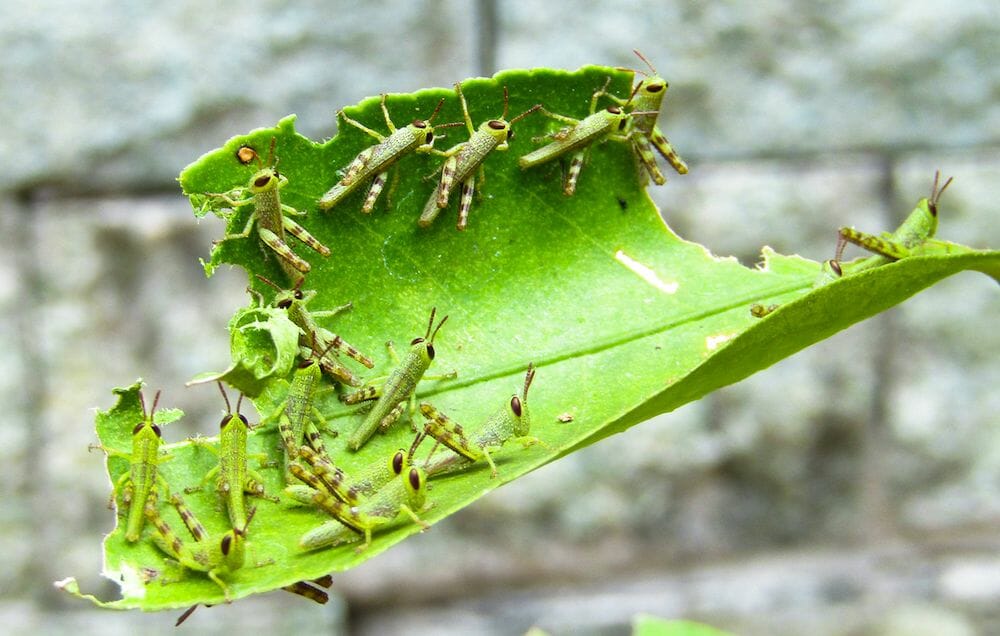There’s a long list of problems with chemical agriculture treatments: they’re destructive to soils and waterways; they can be hazardous to human and other organisms’ health; and they’re increasingly ineffective, as pests and weeds develop resistance. Yet, the global food chain depends on them.
Enko Chem’s mission is to shift reliance on chemical treatments by facilitating the discovery and development of more effective and less environmentally devastating products. It’s doing this by relying on processes used for new drug discovery in the pharmaceuticals industry.
The Woburn, Mass.-based company has scored $45 million in Series B funding to launch from stealth mode. The Bill & Melinda Gates Foundation led the round. Existing investors Anterra Capital and Rabobank and new investors Finistere Ventures, Novalis LifeSciences, Germin8 Ventures and TO Ventures Food also invested.
Funding from its Series B round will support the advancement of Enko’s first solutions into field testing and regulatory trials.
Replicating pharma
Enko got its start in 2017 through incubation within agri-foodtech investor Anterra Capital. The company uses pharmaceutical discovery and predictive analytics tools to advance under-developed “modes of action” that can effectively fight crop pests.
Borrowing approaches used to innovate in human health sciences is what makes Enko an interesting and potentially transformative player in the agri-foodtech sector, said Adam Anders, managing partner at Anterra.
“In plant science, not only is innovation stagnant, but existing products are coming off patent, they’re having resistance issues, or arguably weren’t 100% fit for purpose when they were approved,” Anders told AFN. “So we’re fascinated by what we can borrow from the billions of dollars that go into human health VC each year on that cutting edge basis.”
“Enko Chem is one example of where we are borrowing from cutting edge, small-molecule discovery innovations that in human health and applying them to a different process of discovery,” he added.
Plenty of companies are working to identify and develop new and effective crop protection alternatives to synthetic chemicals. Often the approach starts by screening individual molecules and hunting for new modes of action, which for crop protection means identifying new ways to kill pests and weeds or to boost a crop’s resilience to them.
Enko, led by founder and CEO Jacqueline Heard, wants to advance new, promising modes of action that have been discovered but for which targeted compounds have not yet been developed, and so the modes of action have not been fully validated. Its platform leverages human health technologies to provide “better, early insight into molecules, their modes of action and also into the probability of having toxicity issues later down the discovery process,” explained Anders. “It increases the strike-rate in the system of discovering new molecules and increases the probability of passing them through regulatory later. All in all, it should decrease the time and cost of getting new innovations into the field.”
Broad accessibility
Time, of course, is always of the essence in advancing potentially impactful scientific discovery (see: Covid-19 vaccine development). But the cost-side is one of the main reasons the Gates Foundation is backing Enko’s technology: the organization wants to ensure that new product ideas that advance to the development stage and through field testing and regulatory processes are accessible to the world’s lowest income farmers.
In sub-Saharan Africa and South Asia, smallholder farmers produce the majority of food consumed. But access to new technologies for emerging markets smallholder farmers typically follows advanced, commercial markets, often by as much as a decade, Heard told AFN. Enko hopes to facilitate more parallel access, rather than sequential.
“Smallholder farmers are the backbone of the agricultural economy in these regions, so working with innovative companies like Enko Chem to equip them with better ways to fight these threats is crucial to building their resilience to climate impacts on food and feed production,” said Vipula Shukla, senior program officer for agriculture at the Gates Foundation.
Added Shukla: “We’re committed to ensuring that smallholder farming communities in sub-Saharan Africa and South Asia have access to affordable innovations that can safely and sustainably control crop pests and diseases, which are likely to intensify and spread into new areas due to climate change.”





